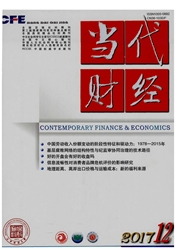

 中文摘要:
中文摘要:
以我国A股上市公司为样本,研究了在不同的宏观经济增长环境下,两类货币政策传导渠道对企业投资效率的影响。研究发现,在经济增长平稳时期,货币供给与企业投资不足以及过度投资正相关,信贷供给与投资不足负相关、与过度投资正相关;在经济增长非平稳时期的信贷渠道作用发生部分反转;在经济增长乏力时期的宽松货币供给提高了企业投资效率。研究还发现,利率是货币渠道的有效替代变量,上述影响在不同产权性质特征和行业特征下具有强度差异。在进一步的研究中,我们发现企业在经济增长乏力时期存在显著的“蛰伏”效应和择机调整行为。
 英文摘要:
英文摘要:
Taking China's A-share listed companies as samples, this paper studies the influences of two kinds of monetary policy transmission channels on corporate investment efficiency in different macroeconomic growth environments. The results show that during the period of steady economic growth, money supply is positively correlated with both corporate under-investment and over-invest- ment, while credit supply is negatively correlated with under-investment and is positively correlated with over-investment. During the period of unsteady economic development, part of the effect of cred- it channel is inversed. During the period of economic growth lacking of strength, the loose money supply can improve corporate investment efficiency. It is also found that interest rate is an effective substitution variable of monetary channel. The above-mentioned influences have differences in intensity under different nature and characteristics of ownership and different industry characteristics. In further researches, it is also found that during the period of economic growth lacking Of strength, enterprises may present significant "dormancy" effect and timely adjustment behaviors.
 同期刊论文项目
同期刊论文项目
 同项目期刊论文
同项目期刊论文
 Financial relationships, banking structure and financing constraints: evidence from private enterpri
Financial relationships, banking structure and financing constraints: evidence from private enterpri 期刊信息
期刊信息
